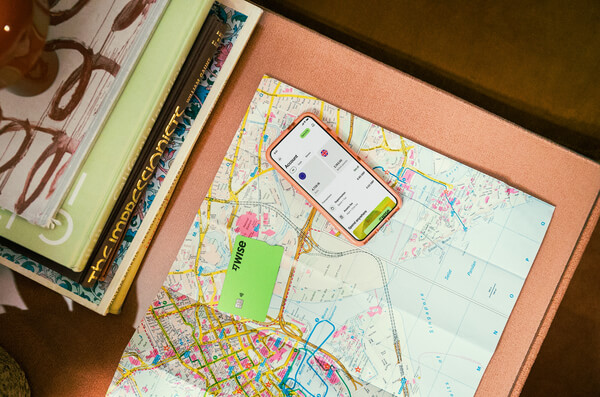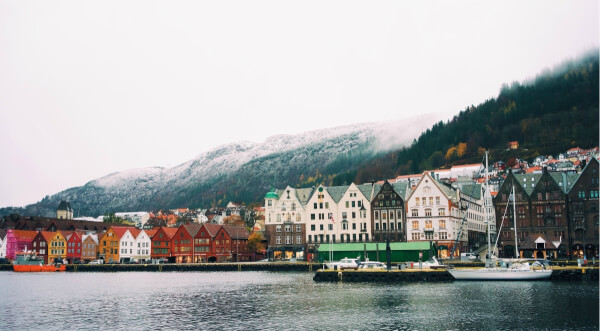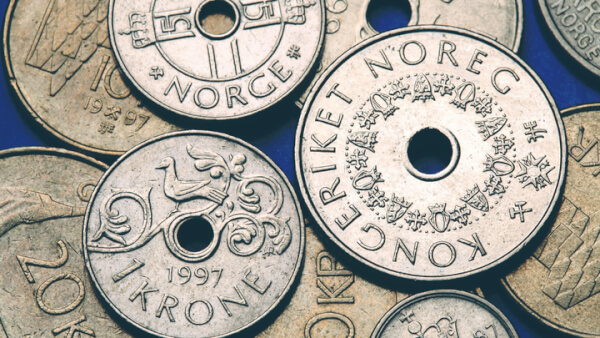ATMs in Norway: Credit cards and fees
One of the many delightful things about Norway is that their term for ATMs is ‘minibanks’. Whether you’re travelling there for work or play, here’s all you...

This is intended to serve as a general guide. Always check with official sources for the latest government and health advice.
Opting for tap water is often the most eco-friendly and cost-effective way to stay hydrated while traveling. But when you're in a new country, knowing if the tap water is safe is crucial to avoid any unexpected health risks. If you're headed to Norway, you're likely wondering: is its tap water safe to drink?
The quick answer is yes. This guide will clearly explain why Norway’s tap water is safe, and detail its quality to help you prepare for your trip. We’ll also introduce the Wise card, a useful travel companion to help you save on spending during your time there.
| Table of contents |
|---|
Yes, tap water in Norway is generally considered safe to drink all over the country according to the National Institute of Public Health.1 It is regulated by "Regulations No. 1868 of 2016 on water supply and drinking water", which sets standards to ensure the water is health-safe, clear, and without prominent odor, taste, or color.2
While some residents may still choose bottled water or filters, this is typically for personal taste or preference rather than a concern about safety. As a practical tip, always check if your specific tap is safe for drinking. Although the public water supply is reliable, older building plumbing or other disruptions could affect the water quality. A "boil water" advisory may also be issued by authorities if there is a risk of harmful microorganisms in the water.1
The primary official government authorities responsible for tap water quality and regulation include the Norwegian Food Safety Authority (Mattilsynet) 3 and the National Institute of Public Health. The Norwegian Food Safety Authority is responsible for approving and controlling waterworks throughout the country. They oversee the implementation of the "Regulations No. 1868 of 2016 on water supply and drinking water", which prohibits the pollution of drinking water and requires it to comply with strict limit values. The water supply must not contain viruses, bacteria, parasites, or other substances that could pose a potential health hazard.
Norway has a large volume of freshwater resources, with annual reserves estimated at 377 billion cubic meters in lakes, glaciers, and streams.This natural abundance allows waterworks to supply 90% of the population, with the remaining 10% relying on private wells. 90% of the country's water supply comes predominantly from surface water sources such as lakes, ponds, and streams, with groundwater making up the remaining 10%.1
The water often requires minimal treatment due to its high natural quality. Treatment processes often include UV disinfection and minimal chlorination, which helps preserve the water's natural taste.3 Large waterworks, however, may employ more advanced coagulation processes.
Norwegian drinking water is generally soft, with low concentrations of minerals such as calcium and magnesium. This is a result of the country's cold climate and weathering-resistant bedrock, which releases only minimal amounts of minerals into the water.5
The tap water is widely praised for its taste, described as clean, fresh, and neutral. A chlorine taste is rarely noticeable, as many water systems use little to no chlorine.
Staying hydrated is key to a great trip, and so is managing your travel budget wisely in Norway. The Wise card is a simple way to save when you're spending internationally, be it on bottled water, food or shopping. You can spend in 150+ countries, including NOK, at mid-market rate — basically the rate you see on Google. With no foreign transaction fees and low, transparent pricing, Wise usually gives you the best value for your money.

Simply create a Wise account for free, order a card and top-up to get started. Having a physical Wise card allows you to make chip and pin payments, as well as make some free ATM withdrawals each month for when you're in Norway. You can get digital cards and add to your Google or Apple Pay wallet for instant use. Spend directly with the Wise account and let auto-conversion do the trick or convert in advance to NOK. You can hold and exchange 40+ currencies in your Wise account and spend the currencies you hold for free.
Wherever your travel takes you, the Wise card makes spending money abroad cheaper and easier.
This general advice does not take into account your objectives, financial circumstances or needs and you should consider if it is appropriate for you.
Please see Terms of Use and product availability for your region or visit Wise Fees & Pricing for the most up to date pricing and fee information.
Boiling tap water is not necessary under normal circumstances, as it is considered safe to drink.1 However, municipalities may issue a "boil water" advisory if there is a risk of harmful microorganisms in the water. In such a case, water should be brought to a rolling boil for one minute.
The tap water quality is consistently high and safe across the country. However, water taste can vary by region depending on the source. Some people may find water from wells to have a higher mineral content.5
Yes, the ice served in restaurants and bars is generally safe to consume, as it is made from the public water supply, which is deemed safe to drink throughout the country.1
Some people in Norway may use water filters primarily for personal taste preference, as a subtle mineral taste can be noticeable in some areas.
Sources:
*Please see terms of use and product availability for your region or visit Wise fees and pricing for the most up to date pricing and fee information.
This publication is provided for general information purposes and does not constitute legal, tax or other professional advice from Wise Payments Limited or its subsidiaries and its affiliates, and it is not intended as a substitute for obtaining advice from a financial advisor or any other professional.
We make no representations, warranties or guarantees, whether expressed or implied, that the content in the publication is accurate, complete or up to date.

One of the many delightful things about Norway is that their term for ATMs is ‘minibanks’. Whether you’re travelling there for work or play, here’s all you...

Picturesque fjords, Viking history and a vibrant cultural life make Norway an exciting tourist destination while the high standard of living in cosmopolitan,...